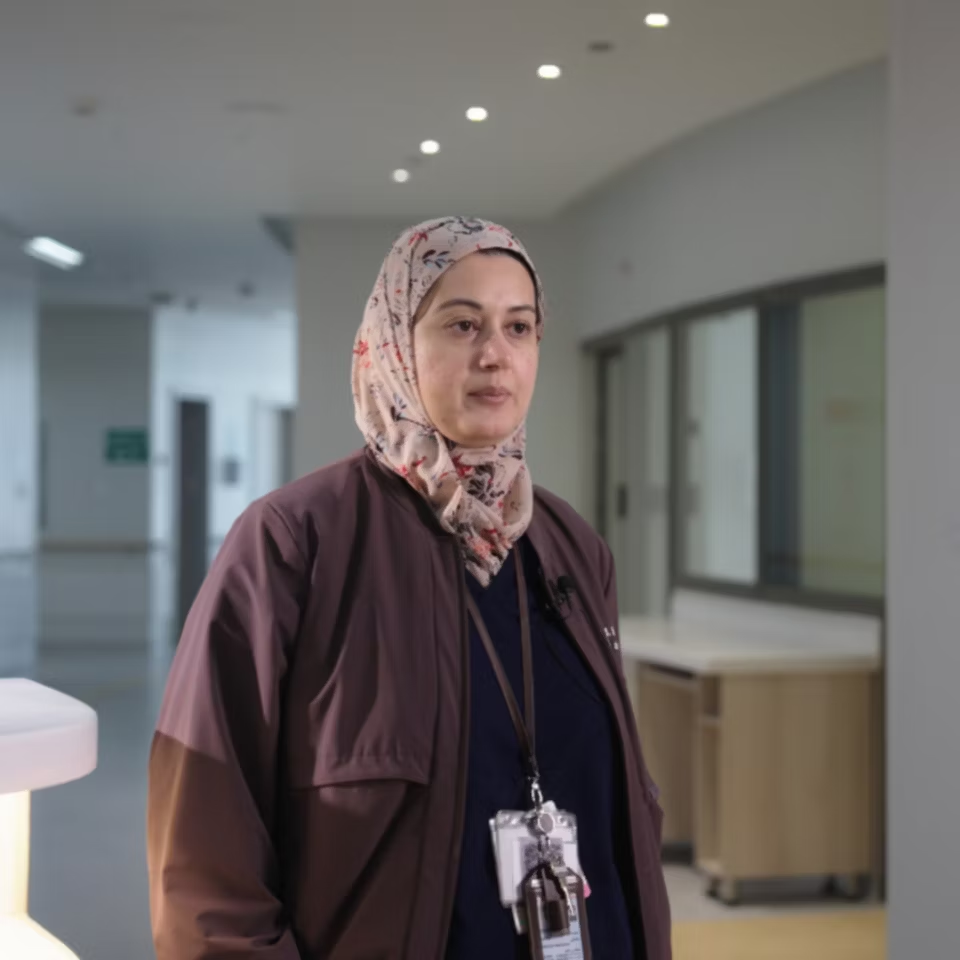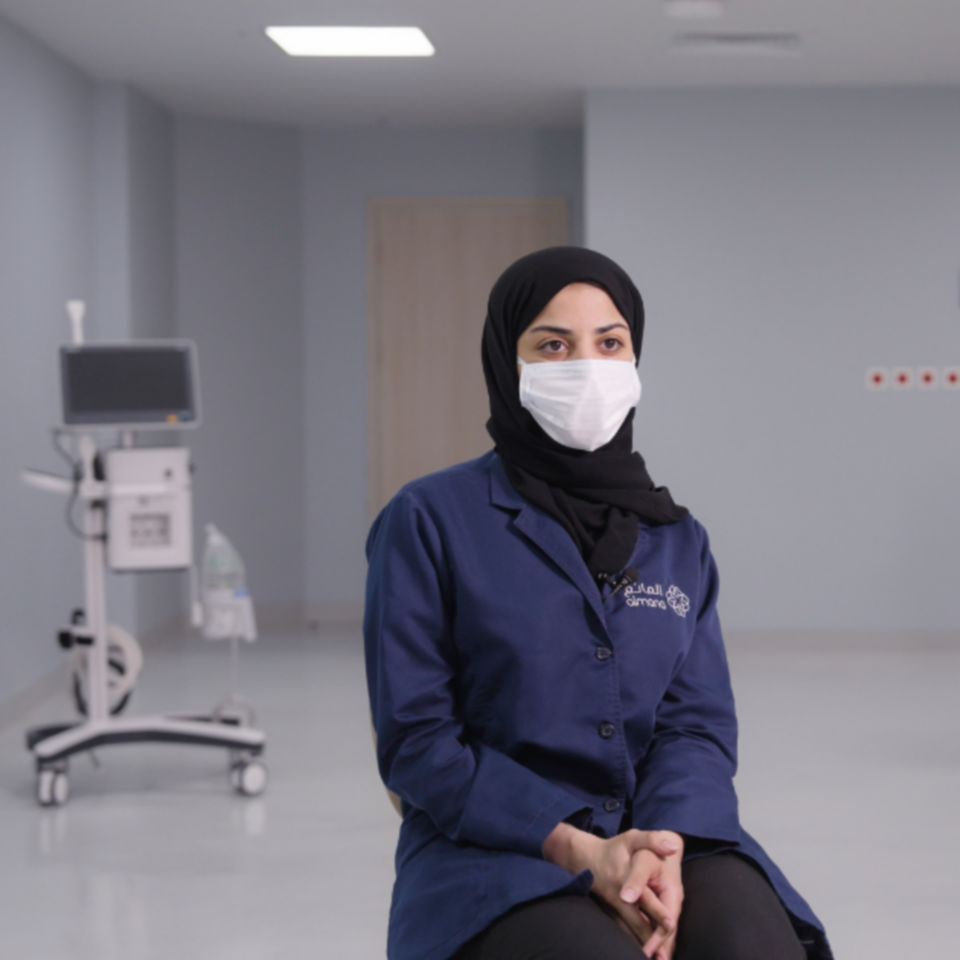Envisioning the Future of Smart HealthcareDriving Safety and Efficacy with Innovative Perioperative Solution

Paving the Path to Accessible and High-quality Healthcare
In line with Saudi Vision 2030 in healthcare sector, this blueprint for a healthier, more sustainable future is being realized through the steadfast commitment of private hospitals like Almana, who are setting new benchmarks for accessible, high-quality healthcare. With a legacy of 75 years serving the Eastern Province, Almana Hospital Group has established 7 hospitals, serving among about 4.9 million Saudi residents.
Almana Aziziah, the latest facility of the Almana Hospital Group, is strategically expanding to meet the growing demands of the community. It boasts over 180 beds and an advanced digital surgical department equipped with seven operating theaters, offering specialties in internal medicine, general surgery, neurosurgery, and urology—all powered by AI-integrated systems.

Dr. Saled AI-Ahmad
Hospital and Medical Director, Almana General Hospital Dammam
Almana leads in using advanced medical devices and digital health solutions such as ICU, ER and OR. In the presence of cloud technology and Mindray M-Connect solutions, we enhance care, quality and efficacy.
Innovative Technology Driving Perioperative Safety
By incorporating innovative technologies, Alamana Aziziah has developed a comprehensive perioperative care solution for its patients.


Patient safety is the priority of perioperative care. As the hospital is progressing, it is encountering more complex cases. For example, the morbidly obese patients in general surgery, and neurosurgery that required prolonged anesthesia. While discussing the first challenging bronchoscopy surgery involving difficult airway management at the new hospital, Dr. Hadia, the head of anesthesiology and OR director, recalled her first experience using High-Flow Nasal Cannula (HFNC).
Dr. Hadia Mannan Mian
Head of OR and Anesthesia, Almana Aziziah
High Flow Nasal Canula (HFNC), which allows apneic oxygenation, is a revolution in airway management in anesthesia. I can modulate the oxygen supplementation to the patient, and also the monitor. It gives a real time monitoring of the patient. We were able to maintain saturation and safety levels.

To enhance patient comfort and support quicker recovery while maintaining safe and effective gas delivery, low-flow anesthesia is an effective method. As Dr. Hadia noted, “With the low flow system, you can go as low as 0.5 liters and still rely on it to ventilate the patient and provide accurate volatile concentrations.”
Accurate and Timely Information for Decision-Making
Also, being the OR Director, Dr. Hadia points out that having the right information is crucial for making informed decisions—a challenge that medical staff face daily.

Dr. Hadia Mannan Mian
Head of OR and Anesthesia, Almana Aziziah
We're trying to connect units within the hospital so a patient journey can be really depicted in real time. The biggest thing is the linkage, the M-Connect. The connectivity will really change the journey of patients and healthcare workers. Healthcare professionals would be able to see metrics and match their performance and waiting times and flows within hospitals.
Optimizing Operations: Management and Efficiency
The OR department meticulously manages anesthesia gas with the utilization of M-Iot device management system, promoting sustainability by optimizing gas utilization and minimizing waste.
OR also has a lot of logistical and maintenance concerns shares with the biomedical department. According to Fatimah Alsaghah, the Manager of Biomedical Engineering at Almana Aziziah, there are ongoing challenges related to device handling and inventory control.
One of the issues is that nurses often transfer devices between departments without notifying the relevant teams, which leads to considerable confusion and inefficiency. Upgrading devices is also a tedious process, as each one must be updated individually, consuming valuable time. Additionally, inaccuracies in inventory management complicate efforts to ensure that all devices are properly accounted for.
Engr. Fatimah Alsaghah
Manager of Biomedical Engineer, Almana Aziziah
M-Iot provides us data on the anesthesia gas, the location of the devices and utilization, which including the self-test result and the default Information. This will help us better and understand of equipment used and will offering variable insights for the future of procurement and maintenance.

Moreover, communication across departments has significantly improved. "We can now access data from all departments, making it much easier for us to collaborate effectively."
Envisioning a Smart Healthcare Future
In 2023, Almana hospitals treated 1.6 million outpatients and 53,000 inpatients.
Looking into the future, he adds,

Dr. Saled AI-Ahmad
Hospital and Medical Director, Almana General Hospital Dammam
Data driven analysis is always a key strategy for Almana Hospital. We have increased our service offering to meet the community's growing demand and further enhancing our service delivery.
Later on, the hospital will focus more on health risk prevention through primary health care clinics, regular screens, screening program, and early cancer detection.
The 12-year partnership between Mindray and Almana embodies a proactive approach to addressing the evolving needs of private hospitals in Saudi Arabia. By leveraging innovative technologies and tailored solutions, we are dedicated to enhancing patient outcomes and streamlining hospital operations in the dynamic landscape of healthcare.








